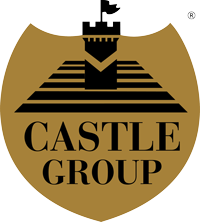What is a Homeowners Association (HOA)?
January 30, 2020

HOAs are typically established to make and enforce rules regarding the properties within a community. HOA’s are incorporated and are subject to state laws. The association has a board of directors that are resident volunteers (post turnover from Developer) elected to enforce and oversee the HOA governing documents and are considered the executives of the HOA, with the President being the chief executive. For HOA communities, membership in the HOA is a requirement for the purchase of a home and assessments are mandatory.
The board members owe a fiduciary duty to the home owners to manage and operate the association using the care that an ordinarily prudent person would use under the same or similar circumstances (The Business Judgement Rule). This means that the board must exercise business judgment in making decisions while operating or managing the association. Business judgment involves making rational, informed decisions in good faith. The board must follow the law and its governing documents and apply and enforce them in a fair and uniform manner. The board must obtain and consider all of the relevant facts and circumstances, identify the various options available to the board, and carefully weigh which course of action would be in the best interests of the association and its membership as a whole. The purpose of the board is to represent the interests of the unit owners.
Once the community reaches the appropriate stage the Developer will turn control of the community over to the residents. This will allow the residents to elect their directors and the majority control of the board will be that of the resident directors versus the Developer. The board is elected to make all decisions on how to run the Association by a majority vote of the board.
What are some Board Responsibilities?
Typically with the assistance of a management company, the board will establish and adopt an annual operating budget, sign and approve all contracts and proposals and expenditures of association funds, contract for insurance, establish rules and regulations and enforce the Declaration and Bylaws, delegate powers to chartered committees that will take action, maintain association records, maintain common areas, establish design review standards, etc.
How are Board Meetings conducted?
Meetings of the board are noticed and open to the membership, however, discussion and actions taken on behalf of the HOA are voted on by the board members only. The President typically sets the agenda and runs the meetings in parliamentary fashion. The statute allows for members of the association to attend board meetings and comment on agenda items for the board’s consideration.
What are the differences between chartered committees and ad-hoc committees?
Chartered committees are board-appointed committees like a Covenants Enforcement Committee (CEC) or Architectural Control Committee (ACC). The members of these committees are appointed by the Board and typically serve a one-year term to be re-appointed by the board annually. Tasks that would be that of the board are delegated to the committees, for example, the CEC would attend hearings for residents in violation and the ACC reviews and approves design review applications based on the guidelines adopted by the board.
Ad-hoc committees are formed for a specific task or objective (collecting of information and recommendation to the board) and are dissolved after the completion of the task or achievement of the objective. Most committees (other than the standing committees) are of ad hoc type and are not chartered by the board because there is no delegation of Board duties.
Property Manager – The property manager is not a member of the Board of Directors but takes direction from the Board of Directors. The manager plays a pivotal role in the direction of the board by offering unbiased and informed counsel to the Board of Directors which, ultimately, ensures that everything runs as it should. This often entails assisting the President with annual and board meeting preparation, working with the Treasurer to draft the next year’s budget, assisting the Secretary in minutes preparation and notices, etc., and offering overall guidance when making decisions.
Think of the HOA board and a Property Manager (PM) as parts of an automobile. The HOA board is the gas/brake and the steering wheel; they choose the direction they want to go, and the speed with which they want to get there. The property manager is the engine and the tires. They help get you where you want to go!
An effective board will always keep the best interests of the association at heart and partner with management to optimize property values and ensure harmonious living environments for you and your neighbors.
Tags:
what is an hoa

